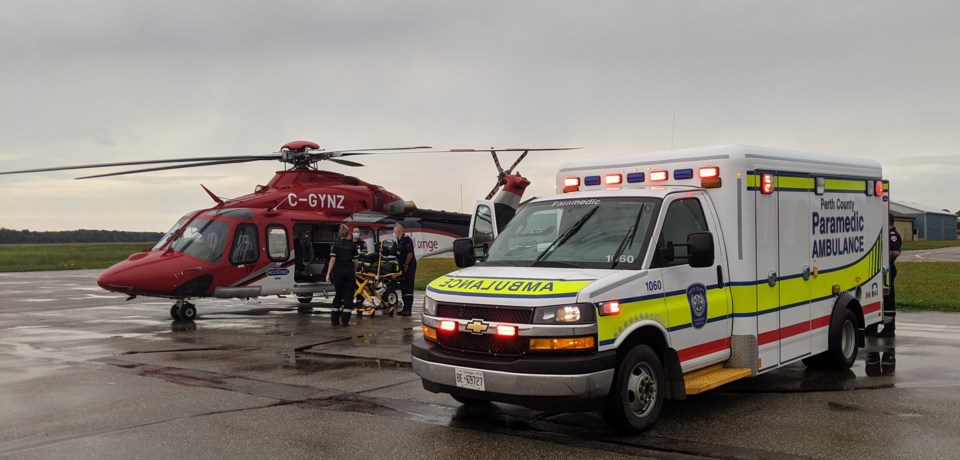The final 2023 report for the region’s paramedics highlighted some key milestones over the last five years, and some priorities for this year.
Among them: mental health training was introduced for paramedics; a deployment review resulted in a 16 per cent reduction in stand-bys - when vehicles move to cover other areas of the region; Mobile Integrated Health (MIH) program was broadened to serve a larger community, and a partnership was approved with Medavie Health Services (MHS).
“This is a transitional year and as always, our staff have done an outstanding job of serving the community,” Mike Adair, chief of the Perth County Paramedic Services (PCPS), said in the report.
Tristan Barter, deputy chief of operations, presented the report at Thursday’s Perth County council meeting.
During 2023, paramedics responded to 11,080 calls for service. There has been a 26 per cent increase in call volume since 2018 and Barter said that trend is expected to continue in the years to come.
Although in the last two years call volume has increased 11 per cent, changes in the deployment plan saw a 16 per cent decrease in vehicle movement between areas of coverage.
PCPS continues to perform well for reaction times, within the two-minute objective. Response time over the last five years has met targets.
For most call categories, paramedics met targets, though for sudden cardiac arrests, paramedics were short every year other than 2020.
The report notes that fire department data is not accessible for the PCPS and it may change the result of the metrics. Additionally, the mix of urban and rural areas in the region results in peaks and valleys and influences the overall shortfall.
There is an increase in the average offload delay at Huron Perth Healthcare Alliance.
The target for offload delays is 30 minutes. Currently, the average delay is 34 minutes throughout the county.
Barter said that the service is working with hospitals to reduce that time where possible and has completed an application to the Ministry of Health for offload delay funding.
In 2024, priorities for the PCPS include a refresh to the public access defibrillator program, a three-year operational plan for the MIH program, implementation of a patient satisfaction survey, a business analytics partnership to inform operations, building of a pathway program for students to transition into employees, continued investment into mental health training, and the roll out of a purchasing strategy with MHS.



